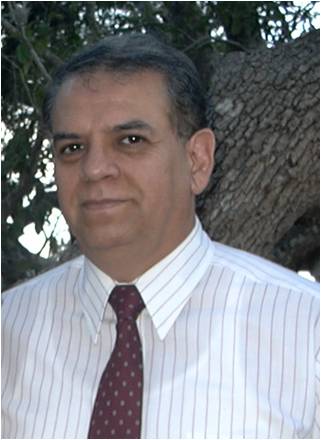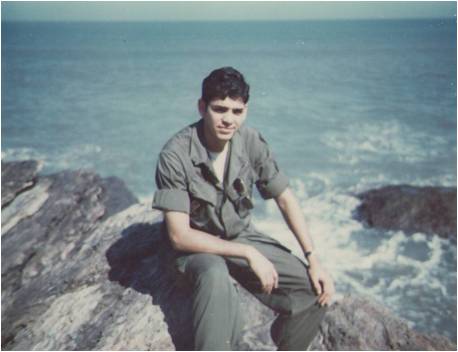TRANSCRIPTION
Hello, dad. I am glad to find the right time and place to talk with you about your past experiences in the Vietnam War. I'm hoping to learn more about your experiences working as a war medic, a most important position besides being a soldier. Now, I would like to ask you some questions. How can you describe your first days of service in Vietnam?
It was very scary, very frightening. They shot at our plane as soon as we landed. They filled it full of holes.
Was being a medic more challenging than being a soldier?
Yes, it was, because the enemy always wanted to kill the medic first. Because of he died, nobody could take care of the soldiers if he was killed.
What was the best thing about being in Vietnam?
It was helping save a lot of lives.
Did you gain any experiences during the war?
Yes, a lot of experience. You get to know a lot about yourself, your weaknesses and your strengths.
Did you ever learn from your experiences in Vietnam, becoming a better person?
Yes, it gave me more confidence in myself and better faith in God.
Have you ever stared at the face of death while in the war?
All the time, I faced a Viet Cong who pointed a gun at my face. When he saw I was unarmed, he left me alone and went somewhere else.
If so, did your near-death experiences have any affects on you in the long run?
Not really; to be honest with you, not really.
Did you think about your love (my mother, that is) while in Vietnam?
Yes, I thought about her. I wrote to her almost every day.
Were you ever facing peer pressure from your army buddies?
Yes, they wanted me to take alcohol and drugs. They suspected either I was weird or an undercover military police, but I said I wasn't.
As a medic, what was it like trying to take care of wounded civilians and soldiers?
It was a lot of stress, a lot of responsibilities. Sometimes men die.
Did you make any mistakes that you have regrets about?
None that I can remember, I was always about what I was doing over there.
Being away from home for a long time, had you ever missed your parents back in San Antonio?
I missed them all the time, and I would send them a lot of money to help them out. When you are in the war, they pay you a lot of money.
Despite being a medic, did the army want you to carry a gun for protection?
Yes, they were always trying to force me to carry a gun; but, I refused.
Which was the most dangerous experience you had in Vietnam?
It was working with people with contagious diseases, like cholera and typhoid and other kinds of illnesses.
What activities did you do during your time away from your duties as a medic?
I went to visit Taiwan for ten days, that was kind of fun. I went away on vacation.
Have you ever received any mail from the people you know?
No, because we have lost track of each other.
Did you ever have the chance to talk with the local Vietnamese while away from your duties?
Oh yes, some of them worked for me to clean my room. And, they would ask for me for little jobs from me so they can make money.
Do you have any best memories in your time during the war?
The good memories were saving lives, and having those people go back home.
Did you believe you and everyone else were protected by God while in good faith?
Ah yes, I believed I was protected by God. But, I believe others were not protected because they did not have faith in Him.
After going back home since concluding your year in Vietnam, were you happy to return to San Antonio?
Yes, I was really happy to be home. There is no place like home.
Since returning back home, were you a changed man after those experiences in Vietnam?
Yes, I had a lot more confidence in myself and able to make the right choices.
In your own opinion, was the trouble of doing your duty in Vietnam worth it?
Yes, it was. I didn't enjoy it, but I felt it was the right thing to do.
Why did the United States get involved in the war?
They were afraid that communism would spread throughout the world. The Domino Principle stated that if one nation fall, the rest of the nations would fall.

What was the purpose of the war?
It was to stop communism. They wanted to help South Vietnam win so that the whole country would become democratic.
What lesson can be learned from the war?
You must never assume something before it happens. Sometimes letting things work themselves out by themselves is best.

